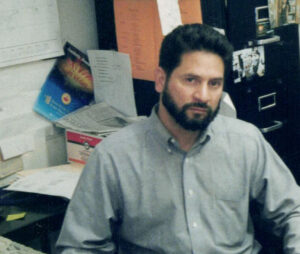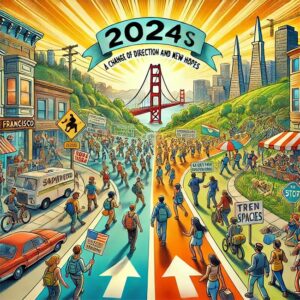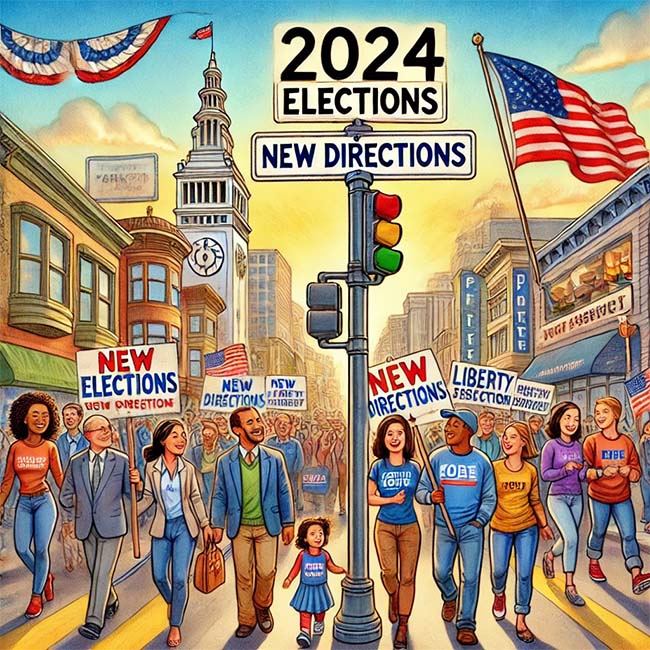
The 2024 elections in San Francisco have revealed clear winners and losers, marking the beginning of a new era of change. Mayor London Breed lost her position, becoming one of the biggest losers. Her administration, which attempted to tackle issues such as crime, shoplifting, and homelessness, was not enough for the citizens, who saw these problems worsen. Part of this rejection is due to controversial policies such as Proposition 37, which reduces penalties for thefts under $950, creating the perception of permissiveness toward crime. This approach weighed on the public’s perception, seeing her as too lenient. Breed hands over the position to Daniel Lurie, the newly elected mayor, who arrives promising a renewed approach and concrete solutions.
Lurie, with a strong background in social and philanthropic work, is known for founding and leading Tipping Point Community, a nonprofit organization that fights poverty in the Bay Area. Heir to the Levy fortune, Lurie has demonstrated leadership skills and experience in organizing community projects. His profile has generated expectations among San Franciscans, who hope for clear solutions to homelessness, crime, and public service efficiency.
 However, like previous leaders, Lurie has avoided mentioning the issue of disappearing parking meters in the city, a topic affecting residents and business owners. While politicians focus on macro issues, small business owners and their customers face growing parking problems. It is forgotten that a prosperous city depends on commerce, and commerce depends on access to parking. In San Francisco, the reduction of parking spaces and increased fees not only complicate life for residents but also deter those wanting to support local businesses.
However, like previous leaders, Lurie has avoided mentioning the issue of disappearing parking meters in the city, a topic affecting residents and business owners. While politicians focus on macro issues, small business owners and their customers face growing parking problems. It is forgotten that a prosperous city depends on commerce, and commerce depends on access to parking. In San Francisco, the reduction of parking spaces and increased fees not only complicate life for residents but also deter those wanting to support local businesses.
Nationally, the elections also brought surprises. Donald Trump won the U.S. presidency, which has generated division and unity across the country. However, in San Francisco, a progressive city, Kamala Harris emerged as the winner of the “symbolic presidency” of the city, surpassing Trump with 307,774 votes to his 58,555 in the area. Although this result has no real implications, it represents a relief for residents, who see Harris as a reflection of their values and aspirations.
Locally, another point of interest was the campaign of Roberto Hernández, an activist and cultural advocate, who was seeking a seat on the District 9 Board of Supervisors. Hernández, known for his work promoting Latino identity and pride, as well as for organizing the famous (and secular) San Francisco Carnival, aspired to represent his community. However, his style and connection with the “Cultural Neighborhood,” homeboys, and lowriders did not manage to garner enough votes outside of his traditional followers. Although he did not win the position, his popularity could strengthen his role as a defender of his community’s interests, especially in the fight against parking policies affecting residents, particularly him, as he owns several cars.
Parking has been another point of controversy in San Francisco, with thousands of parking meters disappearing and the announcement that around 14,000 additional spaces will be converted into no-parking zones. The city expects to generate additional revenue from this measure by fining drivers forced to park in these restricted areas and using the funds to hire more traffic officers. This plan has generated discontent among residents, especially those who frequent local restaurants and businesses. While the intention is to improve traffic flow and generate funds for the city, many believe it will negatively affect local businesses by discouraging visitors and creating a less consumer-friendly atmosphere.
The disconnect between these policies and residents’ needs is evident, and parking is likely
to become a point of pressure for the new local government. San Franciscans hope that Lurie and his team will find a balance between raising funds and the well-being of the community. San Francisco, known for its innovative spirit and social commitment, needs a policy that allows for economic development without disadvantaging residents.
In this context, this year’s elections have brought new faces and renewed expectations. Lurie has the opportunity to demonstrate that his philanthropic experience can translate into effective policies for a complex and diverse city. San Francisco requires a pragmatic approach that is not afraid to challenge external pressures limiting private mobility in the name of globalist policies.
The challenge for Lurie will be great, and San Franciscans will be watching. The prosperity of San Francisco depends not only on being progressive or conservative but also on creating an environment where policies address the daily needs of its people: no tax increases, return the missing parking meters and create new ones, deter thieves with appropriate punishment, and house mentally ill homeless people safely.



